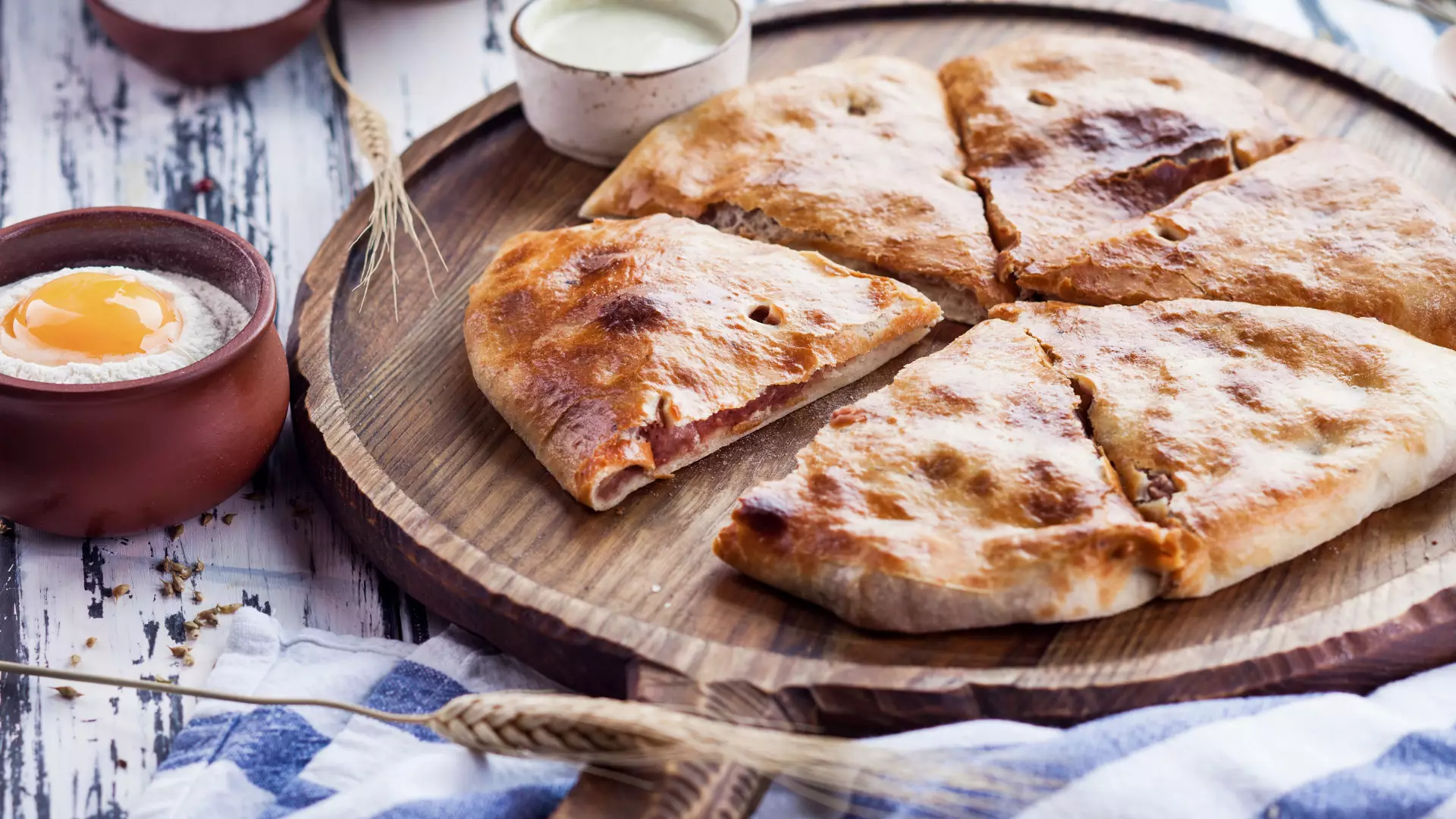Lobiani
There are many kinds of beans in Georgia and many different recipes for preparing them, so one trip may not be enough to try them all!
Rachan Lobiani
There are many kinds of lobiani in Georgia, all of which are delicious in their own way, but if you want to experience the true taste of lobiani, you definitely have to try Rachan lobiani with ham. It is truly one of Georgia’s most beloved culinary masterpieces.
If you find yourself in the beautiful, mountainous region of Racha, and attend the baking of lobiani, you’ll witness a traditional ritual that you’re unlikely to ever forget.
Lobiani, which Rachans also call “bachulebi”, is not made from just any kind of bean. Special varieties are chosen for it, with pride of place given to Batumi beans (Batumura), and second place going to Chita-Kvertskha, also known as Kona Beans.
The second-most important ingredient in lobiani is the Rachan ham. Pigs are slaughtered in Racha in the winter, then cleaned and salted, hung up for a few days to dry, and lastly brought to a special storehouse where they are smoked. A few weeks later, the smoked and scrumptious Rachan ham is ready. Ham made in this manner is the secret to the unforgettable taste of Rachan lobiani.
The Lobiani Baking Ritual
The lobiani baking ritual begins the night before. Well-washed beans are left to soak in water and boiled first thing in the morning. After boiling, the water is changed, and the ham is added in the middle of the boil. The water is then squeezed out of the boiled beans, and the boiled and finely cut ham is seasoned with salt and pepper.
While the beans are boiling, the dough is kneaded. Yeast and salt are dissolved in warm water, which is then poured onto flour in a bowl. The kneaded dough is then put in a warm location to rise.
After the dough has risen, it is made into balls, and then left for ten minutes. It is then flattened into round shapes, into which the seasoned beans, which have already cooled, are placed. The dough is closed up around it and flattened again. In Racha, a round wooden object with a sun disk and depictions of other sacred figures carved into it, called a “mosachikchikebeli”, is placed on top of the dough, and then the lobiani is baked.
Nowadays lobiani is also baked on a heated and oiled pan, and, after browning well, has oil, lard, or butter spread over it. However, lobiani baked in a tone oven is especially delicious. Clay heated over a wood fire gives it more flavor and a unique taste.
A Recipe for Good Lobiani
For the dough you will need:
-
200 g flour;
-
5 g yeast;
-
5 g salt;
-
20 ml oil;
-
100 ml water.
For the filling you will need:
-
100 g beans
-
100 g Rachan ham;
-
10 g pig lard or 20 ml oil/butter;
-
Salt and pepper to taste.
If you do not have smoked ham, you can add pig lard while the beans are boiling, preferably pork belly fat, since it does not have a strong smell.
Barbaroba – The Celebration of Lobiani
If you’re lucky enough to be visiting Georgia on the 17th of December, you can be sure that there will be lobiani in the house of every Georgian family. On this day, the holiday of remembrance for Saint Barbare, people observe a slightly modified version of a ritual once conducted for the deity, Barbale, when “gogruanis” (pumpkin-filled pastries) were baked as a sacrifice. In Georgia, the filling has been changed to beans.
Cookie Policy

